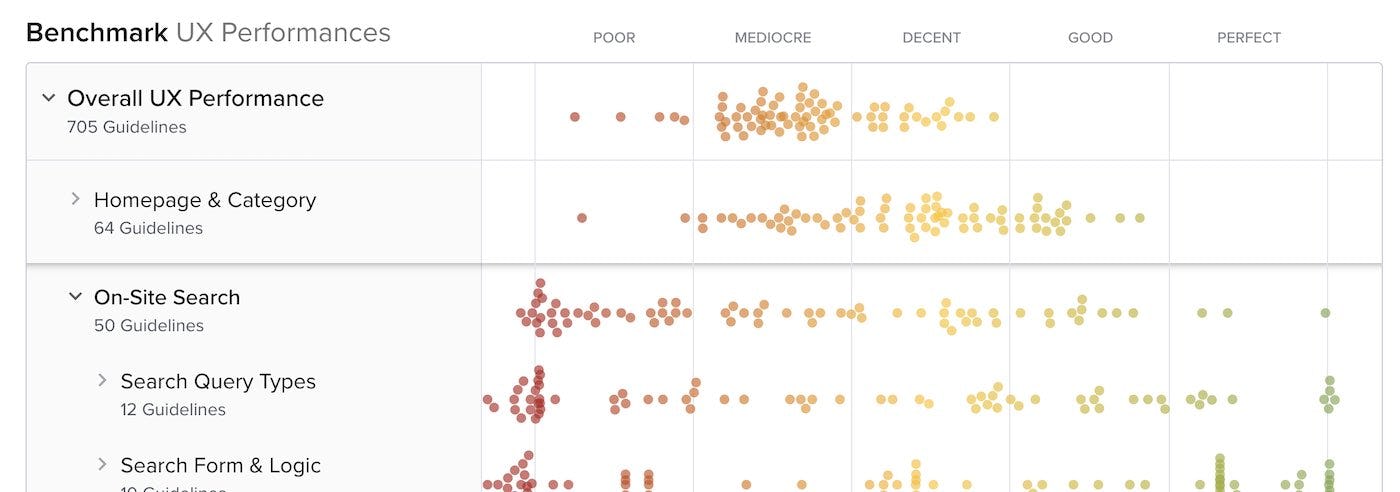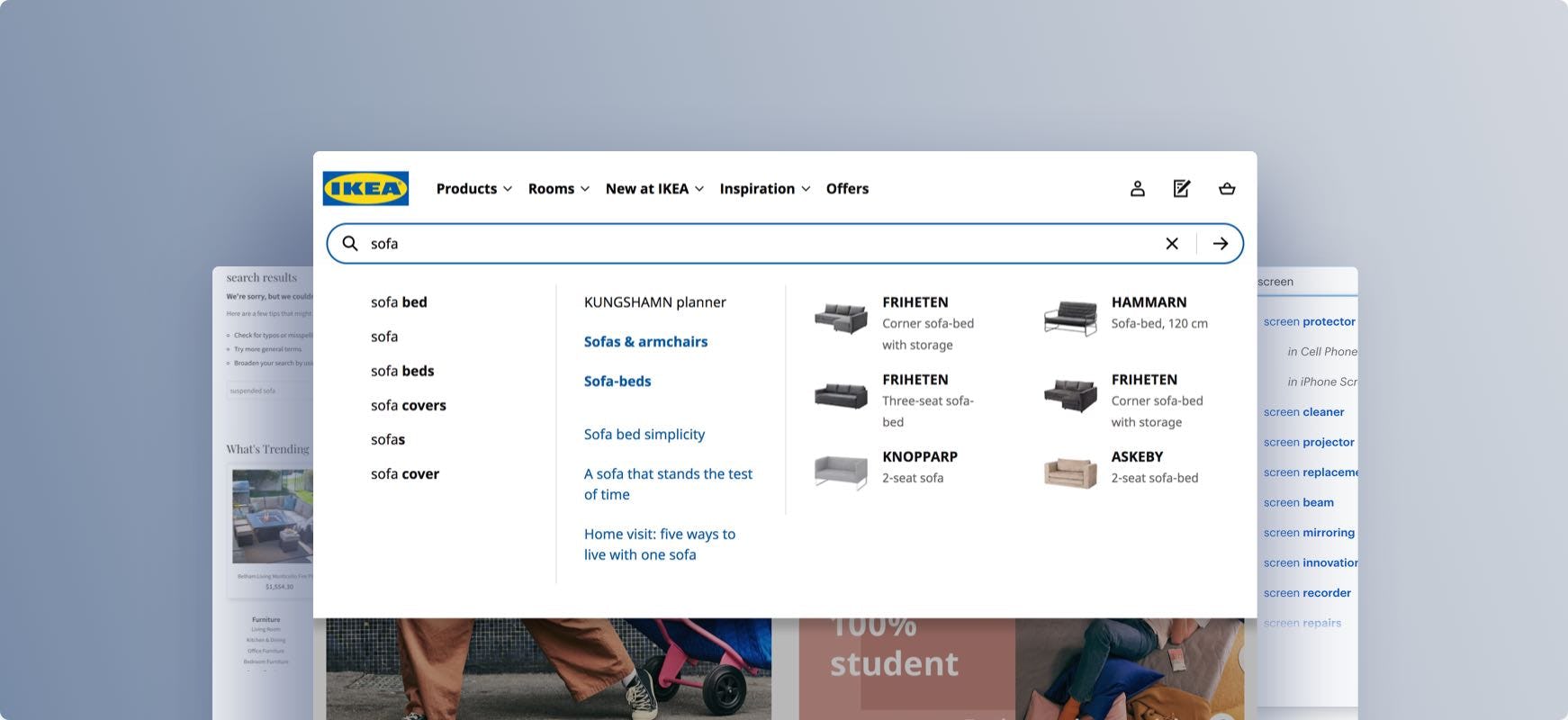[VIP] Baymard Institute: E-Commerce Search Usability - An Original UX Research Study
How do users construct product search queries and navigate search results on e-commerce sites?
![[VIP] Baymard Institute: E-Commerce Search Usability - An Original UX Research Study](https://design.rip/uploads/cover/blog/baymard-research-ecommerce-search.jpeg)
The Current E-Commerce Search UX Performance
During our large scale Search usability study, the test subjects were observed to rely heavily on e-commerce search queries that included either a Theme, Feature, or Symptom, yet most of 19 tested multi-million dollar sites had poor support for these query types. Even among the top 185 grossing US and European e-commerce sites, only 34% support such search queries.
In fact, search support is so poor that 31% of all product finding tasks ended in vain when users tried using search. And among the top 185 e-commerce sites, a whopping 70% of the search engines are unable to return relevant results for product type synonyms – requiring users to search using the exact same jargon as the site – while 34% of the sites don’t return useful results when users search for a model number or misspell just a single character in a product title.
···

·
Our Search UX benchmark database contains 5,300 search elements that have been manually reviewed and scored by Baymard’s team of UX researchers, with an additional 2,400 best- and worst-practice examples from 185 top-grossing e-commerce sites in the US and Europe.
The current overall lacking state of e-commerce search shouldn’t be understood as “users cannot use search on the benchmarked sites.” However, it is a clear indication that e-commerce search isn’t as easy to use as it should be and that users’ search success rates can be improved dramatically on most sites – even when looking at 185 major e-commerce sites. Generally, a high prioritization of the search experience is needed to catch up with those few sites who have a years-long head start, but it is achievable. Furthermore, as the poor overall state of search is present within all industries, most sites will have an opportunity to create a true competitive advantage by offering a vastly superior search experience compared to that of their competitors.
Since a poor-performing search experience can, aesthetically, look just as good as a high-performing search experience, gauging one’s own or a competitor’s search experience will require extensive testing and evaluation.
This is a sub-set of the full benchmark which includes 185 e-commerce sites.
· View our full UX benchmark
· View article “Deconstructing E-Commerce Search – The 12 Query Types
·
5 Research Reports on Search UX
PAID RESEARCH CONTENT
All 49 Search UX research findings are available as part of Baymard Premium, and are divided into the following 5 reports (195 pages of research findings in total):
What's Your Reaction?














![[VIP] DesignCode: Build Beautiful Apps with GPT-4 and Midjourney](https://design.rip/uploads/cover/blog/designcode-gpt4.webp)
![[VIP] AppCoda: Mastering SwiftUI - Professional Packet (Updated 04.2023)](https://design.rip/uploads/cover/blog/appcoda-mastering-swiftui-professional-packet-worth.webp)
![[VIP] AppCoda: Beginning iOS Programming with Swift (Updated 04.2023)](https://design.rip/uploads/cover/blog/appcoda-beginning-ios-programming-with-swift.webp)
![[VIP] Whoooa! 156 vector Lottie animations](https://design.rip/uploads/cover/blog/whoooa-156-vector-animations.webp)







![[VIP] Motion Sound Vol. 1](https://design.rip/uploads/cover/blog/designrip-svx.webp)


![[VIP] Pocket Full of Do](https://assets-global.website-files.com/5d816b07d269385f68dbcab0/5f4439a407293aed9fab199d_thefutur-pocket-full-of-do-opengraph.jpg)